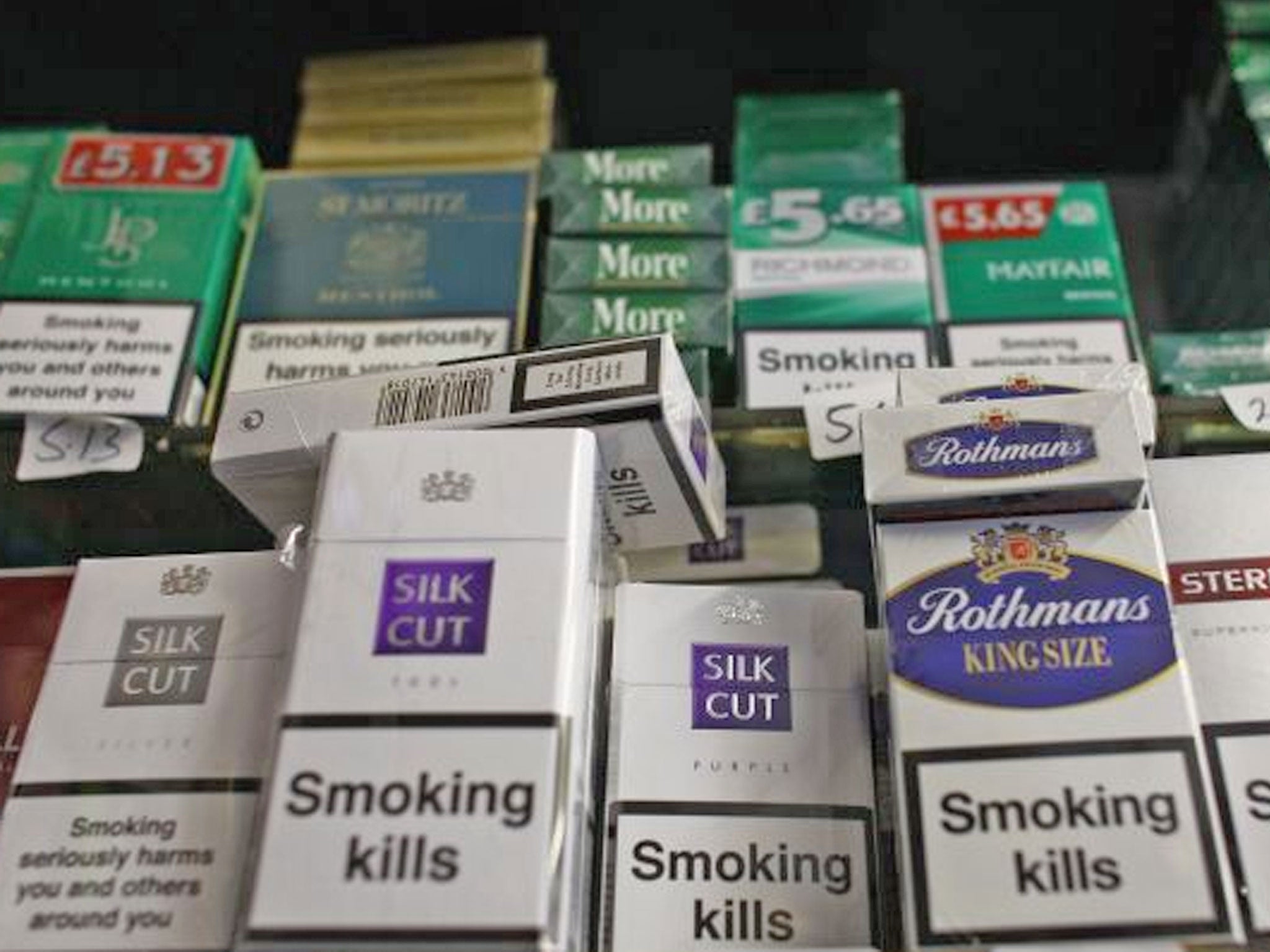Smoking law changes: Ban on 10-packs of cigarettes comes in on 21 May with plain packaging made mandatory
Cheapest packet will cost £8.82 when new laws come into force

Your support helps us to tell the story
From reproductive rights to climate change to Big Tech, The Independent is on the ground when the story is developing. Whether it's investigating the financials of Elon Musk's pro-Trump PAC or producing our latest documentary, 'The A Word', which shines a light on the American women fighting for reproductive rights, we know how important it is to parse out the facts from the messaging.
At such a critical moment in US history, we need reporters on the ground. Your donation allows us to keep sending journalists to speak to both sides of the story.
The Independent is trusted by Americans across the entire political spectrum. And unlike many other quality news outlets, we choose not to lock Americans out of our reporting and analysis with paywalls. We believe quality journalism should be available to everyone, paid for by those who can afford it.
Your support makes all the difference.Smokers will no longer be able to buy cigarettes in packs of 10 after a new law to deter young people from taking up the habit is introduced next month.
From 21 May, shops will be banned from selling small bags of rolling tobacco and 10-packs of cigarettes, meaning the cheapest packet will cost £8.82.
This marks the end of a one-year transitional period after cigarette manufacturers were ordered to stop producing 10-packs and packs without standardised, plain designs in May 2016.
Fruity-flavoured cigarettes and flavours including vanilla, spices and sweets are also banned by the new law.
Menthol cigarettes are being phased out more slowly and will no longer be on shelves by May 2020. The minty flavour is said to make them more attractive to first-time smokers.
Campaigners have said the Government initiative will prevent younger smokers from buying cigarettes as they tend to have less money.
Two thirds of smokers start before the age of 18, according to Cancer Research.
“There’s a great deal of evidence in the UK and around the world that price is the most effective mechanism to reduce consumption of tobacco,” Hazel Cheeseman, director of policy at the charity Action on Smoking and Health (Ash), told The Independent.
“It has a greater effect on younger people and those in low incomes, as for obvious reasons, they’re more sensitive to price.
“Younger people are less likely to be addicted to nicotine than long-term smokers, so it has a greater effect on them. Although the price of a stick will be similar, it will cost a lot more for a pack.”
Rolling tobacco currently comes in packs of 10g and 20g, but after 21 May will only be sold in packs of 30g.
Now health warnings must cover 65 per cent of the front and back of the packaging of cigarettes and rolling tobacco, and promotional words such as “lite”, “natural” and “organic” are no longer allowed to be used.
Since last May, advertising, promotion or sponsorship of electronic cigarettes has been banned on most media platforms, including the internet, TV and radio.
British American Tobacco, Imperial Tobacco, Philip Morris International and Japan Tobacco International filed lawsuits against Health Secretary Jeremy Hunt over the rules last year.
They argued that the regulations were “disproportionate” and violated a number of UK and EU laws as well as destroying valuable property rights.
But the tobacco giants' challenge was overturned the day before the branded packaging ban was implemented and was also later rejected in the Court of Appeal.
France and Ireland have also adopted the decision to end attractively-branded cigarette packets, which was pioneered by Australia in 2012.
One in five adults smokes in the UK and according to the British Medical Association, smoking costs the NHS £2.7 billion each year.
Join our commenting forum
Join thought-provoking conversations, follow other Independent readers and see their replies
Comments